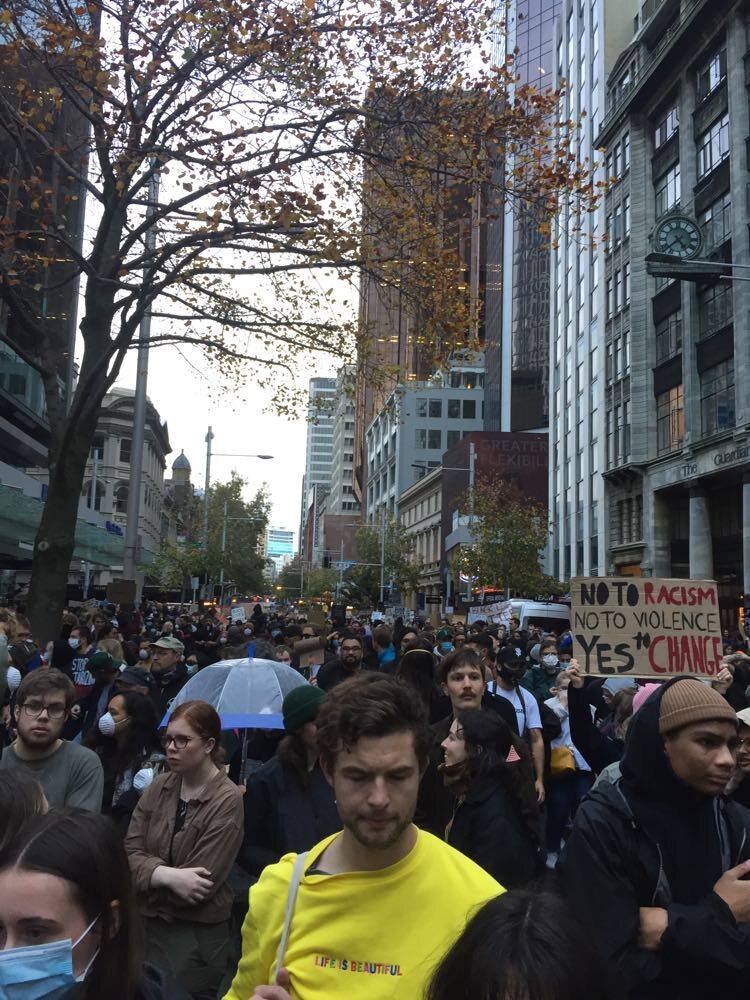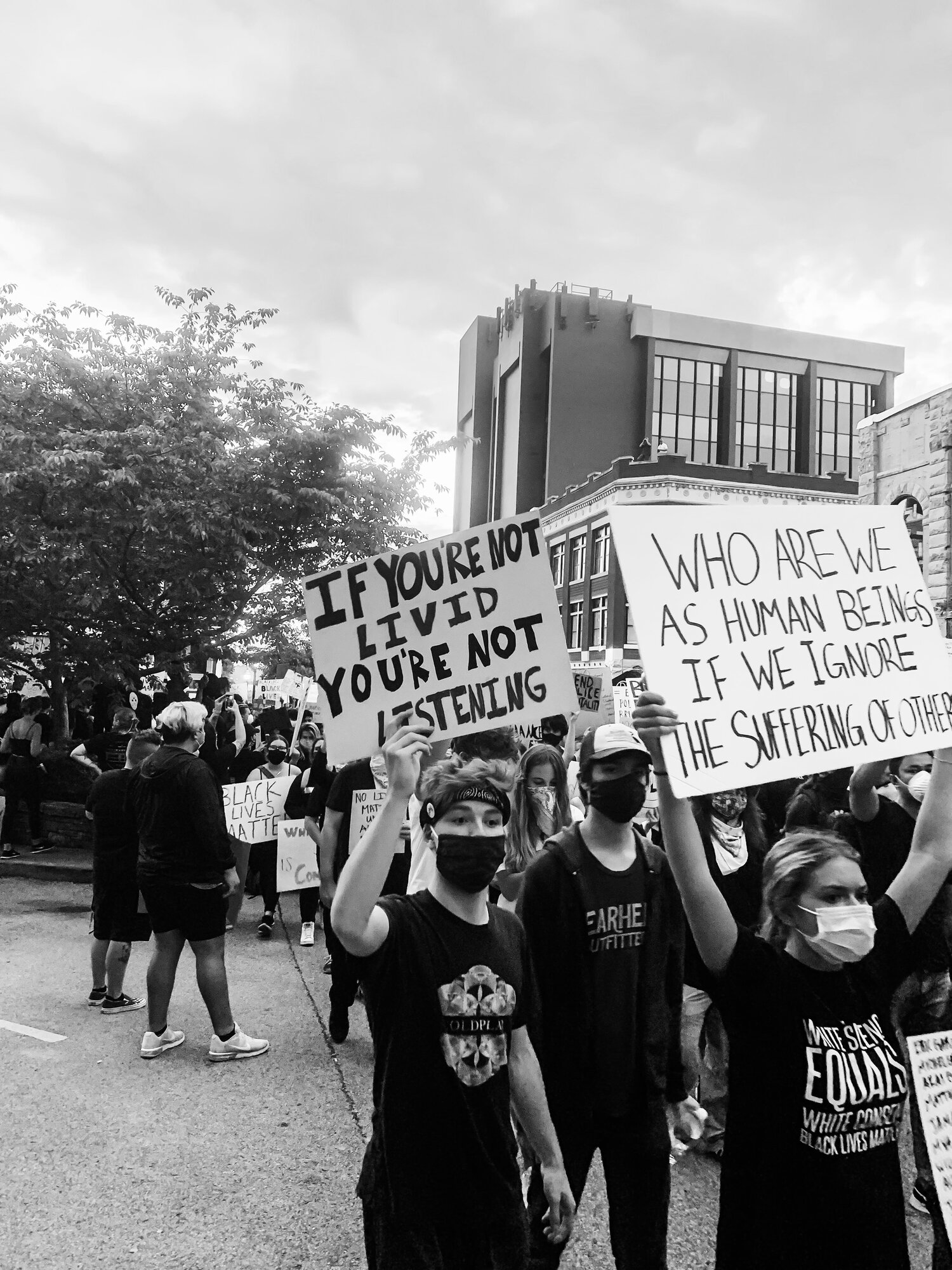It’s been a week. Emma Clifton looks at how she can be better when it comes to talking about race

If I had a dollar for every time this week I have read a sentence starting with “As a white woman,” or “as a white person”… I would have a lot of money. The protests in America over the deaths of George Floyd, Breonna Taylor and Ahmaud Arbery have made the issues of racial inequality, and the systemic racism that benefits one part of the world at the cost of the rest of it, front and centre in our minds.
And when I say “our minds”, I mean, of course, white people. If you’re not a white person, then you don’t need reminding of any of this. It’s there, front and centre, a lot of the time. Maybe all of the time. As Ahmed Ali, a Canadian Research Assistant, wrote about us on Twitter: “It’s a privilege to learn about racism instead of experiencing it your whole life.”
Every time an African-American person is killed in America by the cops… wait, no. I’ll start the sentence again. African-American people are killed by cops in America all the time. The cop that killed George Floyd, the one that put his knee on George’s neck for eight minutes until he died? He’d been a cop for 18 years – and he had 18 prior complaints laid against him for his behaviour. And that’s just the cases he was caught with, and that’s just one cop. According to statistics, US police kill over 1,000 US citizens every year – that’s three per day. There are four other countries that allow their police to kill civilians that readily: Venezuela, the Philippines, Brazil and Syria. The crime rates in those countries far exceed America’s, but the deaths do not.
But what about us, in New Zealand? I’ve watched many of my well-meaning white friends try to partake in this Black Lives Matter movement on social media over the last week and to be honest, I’ve cringed at some of these efforts. But, frankly, at least they tried. The only thing more cringey than white people earnestly talking about white privilege is white people NOT talking about white privilege, and that’s the trap I fell into, which basically makes me a big, fat hypocrite.
Of course, the entire point of a week like this is to listen, not talk. But when you stay silent for too long… it starts to feel like you’re an even bigger part of the problem. I have never shied away from being political on social media – in fact, it used to be an issue back when I worked in magazines and had to at least try and pretend to be politically neutral, something I failed at 100% of the time.
But this topic – and frankly, it’s bullshit for me to call it a topic, it’s a movement. But you see my point? It feels fraught with controversy to even dip my toes into this conversation because I’m so afraid of getting it wrong. However, what’s the alternative –
I just keep my head down and avoid the entire conversation because I’m afraid?
What’s my worst-case scenario here, being called out on social media? What a luxury, to have that as your worst-case scenario when it comes to race.


I ummed and ahhed about going to the Auckland march last Monday because it felt uncomfortable. Partly because of COVID-19 and partly because of my skin colour; that I would be in the way or not ‘get’ it. Then again, I’d never been to a march before but from everything I’d seen on social media, it looked like the kind of thing some well-meaning white people attend to create content for their Instagram feed.
But I went, because I thought it was important to be a person in a crowd for something I believed in. (And if you’re worried about safety – and I understand that you might not approve of my decision to go – please know that I wore a mask and I got tested the next day, and the itchy scratch of the tiny blue brush at what felt like the base of my brain was still worth it, even if I did sneeze for the next hour straight).
I expected to run into everyone I knew and I expected it to look like the kind of crowd that goes to Pt Chev’s Daily Bread on a Saturday morning. You know, a lot of earnest-looking hipsters. And then I got there, and I shut my dumb, cynical mouth. It was not a white crowd. It was a huge turnout of the actual communities for whom police bias – and possible police violence – is already a problem. It was a wary crowd full of people who wanted better for us as a country and as a world.
The speakers were warm and generous and honest about their own journeys to understanding their racial identity and how the people of New Zealand had done well in some areas but could do much, much better in others. And as they listed the examples of what racism looked like in New Zealand, it suddenly became clear to me why I was there, the reason that had been hovering in the back of my mind without me being able to articulate it.
One of my final interviews for The Australian Women’s Weekly was with Farid Ahmed, a survivor of the March 15 mosque shooting, whose wife Husna died in the mosque. This February, I visited the mosque and I sat in Farid’s home as he talked all about his life with Husna, that fateful day and the aftermath that followed. He was so full of love and hope and warmth for this country that had, on separate occasions, taken away his ability to walk and then cost him his wife. And, once I stopped crying a day later, I just felt furious. I felt furious that the casual racism this country allows, this ‘she’ll be right, I’ll laugh along with this joke cos it’s easier than saying something,’ attitude had allowed that shooter to come here and feel at home enough, and supported enough, to do what he did and end up killing 50 people, with the hope of killing more. I felt furious at the attitude we – again, ‘we’ being white people – had of ‘how can this happen in our country?’ and how extraordinarily out of touch those statements were. I felt furious at myself at the times I have been that person staying silent because I don’t want to make anyone uncomfortable.
This protest that’s happening in the US now isn’t the first and it won’t be the last. But the point I’m finally trying to get at is that it’s not just about how many protests does it take for People of Colour to get their point across, but how many protests does it take for white people, even the well-meaning white people, to start getting it??? We have to lean in, lean right in, to the feeling of being uncomfortable of who we are, what we’ve gained because of our skin colour, what we’ve allowed to slide out of our interest once it stops being a trending hashtag.
Lean into the discomfort because it’s not going anywhere.

